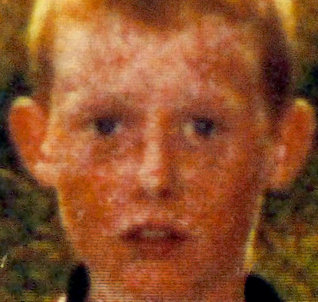| Death Unexplained | |
|---|---|
| Country of origin | United Kingdom |
| Original language | English |
| No. of series | 1 |
| No. of episodes | 3 |
| Release | |
| Original network | BBC One |
| Original release | 7 February 2012 – present |
Death Unexplained is a British documentary series about the investigation of deaths in West London. It was shown on BBC One in February 2012 and follows coroner Alison Thompson, pathologists and other staff who deal with over 4,000 cases per year. The team works in co-operation with her to determine the cause of initially unexplained deaths which occur in her jurisdiction. Each episode is 40 minutes long.
Air date – 7 February 2012
The team investigate three cases. One case was of a man who died in his flat where he lived alone and whose body was not discovered until many weeks later. Despite initial difficulties because of the decomposing condition he was in, his death was determined to have been caused by cirrhosis. Thus an inquest did not need to be held. Both the other cases were young women whose deaths were ruled as suicides at their inquests. Petra (1982–2010), who had anorexia nervosa, died of an overdose of anti-depressants she ordered from abroad on the Internet. Jessica (1983–2011), who had bipolar disorder and was a frequent self-harmer, died of potassium cyanide poisoning in the flat where she lived with her partner.
Air date – 14 February 2012
The team investigate two cases each of man who has died of external causes:
Air date – 21 February 2012
Inquests in England and Wales are held into sudden or unexplained deaths and also into the circumstances of and discovery of a certain class of valuable artefacts known as "treasure trove". In England and Wales, inquests are the responsibility of a coroner, who operates under the jurisdiction of the Coroners and Justice Act 2009. In some circumstances where an inquest cannot view or hear all the evidence, it may be suspended and a public inquiry held with the consent of the Home Secretary.
The Hutton Inquiry was a 2003 judicial inquiry in the UK chaired by Lord Hutton, who was appointed by the Labour government to investigate the controversial circumstances surrounding the death of David Kelly, a biological warfare expert and former UN weapons inspector in Iraq.

Jeremiah Joseph Duggan was a British student in Paris who died during a visit to Wiesbaden, Hesse, Germany, after being struck by several motorists on a dual carriageway. The circumstances of Duggan's death became a matter of dispute because, at the time he died, he was attending a youth "cadre" school organised by the LaRouche movement, an international network led by the American political activist Lyndon LaRouche.
In English law, unlawful killing is a verdict that can be returned by an inquest in England and Wales when someone has been killed by one or more unknown persons. The verdict means that the killing was done without lawful excuse and in breach of criminal law. This includes murder, manslaughter, infanticide and causing death by dangerous driving. A verdict of unlawful killing generally leads to a police investigation, with the aim of gathering sufficient evidence to identify, charge and prosecute those responsible.
The open verdict is an option open to a coroner's jury at an inquest in the legal system of England and Wales. The verdict means the jury confirms the death is suspicious, but is unable to reach any other verdicts open to them. Mortality studies consider it likely that the majority of open verdicts are recorded in cases of suicide where the intent of the deceased could not be proved, although the verdict is recorded in many other circumstances.
Gertrude "Bobby" Hullett, a resident of Eastbourne, East Sussex, England, was a patient of Dr John Bodkin Adams, who was indicted for her murder but not brought to trial for it. Adams was tried in 1957 for the murder of Edith Alice Morrell, and the prosecution intended to proceed with the Hullett indictment as a second prosecution that could follow the Morrell case in certain circumstances, although it did not bring the case to trial following the verdict in the Morrell trial.
Sister Abhaya, a Knanaya Catholic sister, was found dead in a well filled with water in St Pius X Convent in Kottayam on March 27, 1992. Investigation into this death is by far the longest running murder investigation in the State of Kerala.
An inquest is a judicial inquiry in common law jurisdictions, particularly one held to determine the cause of a person's death. Conducted by a judge, jury, or government official, an inquest may or may not require an autopsy carried out by a coroner or medical examiner. Generally, inquests are conducted only when deaths are sudden or unexplained. An inquest may be called at the behest of a coroner, judge, prosecutor, or, in some jurisdictions, upon a formal request from the public. A coroner's jury may be convened to assist in this type of proceeding. Inquest can also mean such a jury and the result of such an investigation. In general usage, inquest is also used to mean any investigation or inquiry.

The death of Brian Rossiter occurred at Cork University Hospital in Cork, Ireland, on 14 September 2002, as a result of head injuries he had sustained several days earlier. Fourteen-year-old Brian Rossiter had been arrested for a public order offence on the night of 10/11 September 2002, falling into a coma whilst in custody at Clonmel garda station. Prior to his arrest, Rossiter had been assaulted by Noel Hannigan, who was later found guilty of this offence and sentenced to two and a half years imprisonment. However, the case was the focus of much controversy and media speculation within Ireland, owing to concerns as to whether the injuries that caused Rossiter's death occurred, not as a result of Hannigan's assault, but while he was in custody.
Gareth Wyn Williams was a Welsh mathematician and Junior Analyst for GCHQ seconded to the Secret Intelligence Service who was found dead in suspicious circumstances at a Security Service safe house flat in Pimlico, London, on 23 August 2010. The inquest found that his death was "unnatural and likely to have been criminally mediated." A subsequent Metropolitan Police re-investigation concluded that Williams's death was "probably an accident".
Gunasegaran Rajasundram was a Royal Malaysian Police detainee who died in the police lock-up while under arrest for suspicion of drug possession. Coincidentally, his death was on the same day as Teoh Beng Hock's body was found. The case of R. Gunasegaran is crucial to the discussion on police practices because it highlights several issues with the policing of Malaysia: the safety of whistleblowers, human rights during police custody, the procedures of inquests, and the practices of the police force. Understanding this case could bring us to find out what more could be done to better the policing system of Malaysia.
A death is suspicious if it is unexpected and its circumstances or cause are medically or legally unexplained. Normally, this occurs in the context of medical care, suicide or suspected criminal activity.

Mark Duggan, a 29-year-old black British man, was shot dead by police in Tottenham, North London on 4 August 2011. The Metropolitan Police stated that officers were attempting to arrest Duggan on suspicion of planning an attack and that he was in possession of a handgun. Duggan died from a gunshot wound to the chest. The circumstances of Duggan's death resulted in public protests in Tottenham, which led to conflict with police and escalated into riots across London and other English cities.
Soumya murder case is a criminal case regarding the rape and murder of Soumya, a 23-year-old woman from Manjakkad near Shornur, while she was travelling in a passenger train from Ernakulam to Shornur on 1 February 2011.
In many legal jurisdictions, the manner of death is a determination, typically made by the coroner, medical examiner, police, or similar officials, and recorded as a vital statistic. Within the United States and the United Kingdom, a distinction is made between the cause of death, which is a specific disease or injury, versus manner of death, which is primarily a legal determination versus the mechanism of death which does not explain why the person died or the underlying cause of death and can include cardiac arrest or exsanguination. Different categories are used in different jurisdictions, but manner of death determinations include everything from very broad categories like "natural" and "homicide" to specific manners like "traffic accident" or "gunshot wound". In some cases an autopsy is performed, either due to general legal requirements, because the medical cause of death is uncertain, upon the request of family members or guardians, or because the circumstances of death were suspicious.
Stephen John Port is a British serial killer and serial rapist. He has been convicted of the murder of four young men and multiple rapes and sexual assaults of a number of others. Port received a sentence of life imprisonment with a whole life order on 25 November 2016.
An accidental death is an unnatural death that is caused by an accident, such as a slip and fall, traffic collision, or accidental poisoning. Accidental deaths are distinguished from death by natural causes, disease, and from intentional homicides and suicide. An accidental death can still be considered a homicide or suicide if a person was the unintentional cause.

Stuart Lubbock was a meat-factory worker from Essex, England, who died under suspicious circumstances at the home of the television personality Michael Barrymore.

David Andrew Whiting was an American writer and personal manager. After becoming the youngest correspondent hired by Time, he turned to working in the film industry, where he enjoyed close friendships with actresses Candice Bergen and particularly Sarah Miles. After a brief affair with the latter, he became her personal manager.